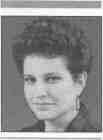 |
Home | Search | Browse | About IPO | Staff | Links |
 |
Home | Search | Browse | About IPO | Staff | Links |
A View from the Suburbs

By MADELEINE DOUBEK
| One of these years Daley will be the one to travel out of his bunker to the suburbs to do some ring kissing |
Years from now, 1994 should be remembered as the year in which the election results finally caught up with population shifts and political power came home to roost in the Republican suburbs.
Predictably, in this Chicago-tilted state of ours, the post-mortem rhetoric featured all manner of blather from Chicago Mayor Richard M. Daley, other Democrats and the GOP winners about whether the city was about to be pushed into Lake Michigan.
Ever concerned about appearances, House Speaker-to-be Lee A. Daniels, within days of his win, went downtown to kiss Daley's ring. One of these years, soon perhaps, Daley will be the one to travel out of his bunker to the suburbs to do some ring kissing. And soon it should be, because the best-oiled Machine runs in DuPage County. DuPage now is the center of the state political universe for at least the next two years as Daniels and Illinois Senate President James "Pate" Philip see whether they can get along well enough to pass a suburban Republican agenda. But, in spite of what turned out to be a Republican rampage, there was no in-your-face sense of giddiness in suburbia after the election.
And there shouldn't be, because despite a historic near-sweep and great Republican gains in the House, the GOP hold over the state political process remains tenuous.
It took the luck of a draw for the Republican-crafted political cartography to come to pass. And then still it took two elections and a huge Republican year before Daniels could win his shot at the speaker's chair.
Sure, Gov. Jim Edgar is the state's new landslide legend, and the GOP statewide ticket did something it hasn't done in nearly 40 years. But GOP candidates were helped, in large part, by Democratic-leaning voters who didn't bother to participate this time because the Democratic candidates weren't credible enough or moderate enough.
Dawn dark Netsch proposed something meant to be tax fairness, but Edgar effectively turned it into a 42 percent tax increase.
Al Hofeld and Pat Quinn were consummate outsiders to the state's Democratic insiders, and Earlean Collins and Nancy Drew Sheehan had credibility problems with small factions within the "regular" Democratic Party.
The fact that the entire Cook County Democratic slate won should remind Republicans just how much the Democrats aided and abetted their win. And that help may not come again, even if it does take Democrats an election or two to fill their leadership vacuum.
Had former Attorney General Neil Hartigan pushed through with a comeback bid, this year's results likely would have been much closer, even with a national Republican tidal wave. Still, Daniels does deserve credit. He won an unpredicted 13 seats, the same number that haunted him in 1990 when Republicans rose up to mount a failed insurrection.
But, just as Daniels ran around pointing out for two years that he missed the speakership in 1992 by a few thousand votes and a handful of seats, he won it by not much more than these same few thousand votes.
| Daniels does deserve credit. He won an unpredicted 13 seats, the same number that haunted him in 1990 |
Consider the victory of Democratic state Rep. Lauren Beth Gash of Deerfield. She ran against Republican Edna Schade, a woman hand-picked by Daniels. Schade is a moderate, abortion rights' mirror
42 / December 1994 / Illinois Issues
image of Gash, with political experience in the Jim Thompson administration and on the Lake County Board.
Gash now likely will inherit the bull's- eye jacket state Sen. Grace Mary Stern of Highland Park wore for the past two years as she becomes Daniels' top target for 1996. She will have trouble accomplishing much of anything in the next two years, but her victory this year sends suburban Republicans the chilling message that Democrats still can win, even in the suburbs.
| Did any voter this year have a clear sense of just what Edgar wants to accomplish in the next four years? No... |
And then there is the problem of governing. Sure, Edgar can say his huge victory means he has a mandate, but a mandate for what?
Did any voter this year have a clear sense of just what Edgar wants to accomplish in the next four years? No, they had a clear sense of what they didn't want Netsch to accomplish. Yet, now comes Philip less than 48 hours after the election to announce his belief that the state should pursue Michigan-style tax reform, replacing property taxes with increases in income, sales, liquor and cigarette taxes.
Philip promoted that even before the election, but it does seem obvious that the 49 percent minority of registered voters who bothered to participate aren't ready to swallow a concept strikingly similar to Netsch's.
"I'll speak for myself," Daniels said, responding to Philip's trial balloon. "There isn't support for a tax increase in my caucus." Daniels was speaking for many in Philip's caucus as well.
No wonder the suburban celebration has been restrained.
Madeleine Doubek is political editor for the Daily Herald, a suburban metro newspaper. She has covered politics since 1988.
December 1994 / Illinois Issues / 43
|
Sam S. Manivong, Illinois Periodicals Online Coordinator Illinois Periodicals Online (IPO) is a digital imaging project at the Northern Illinois University Libraries funded by the Illinois State Library |